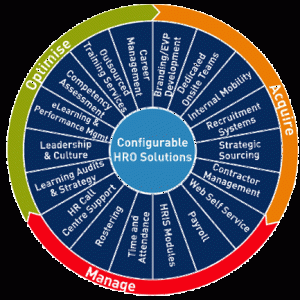
Performance Management for Productivity and Growthh
Performance management is a critical process that organizations undertake to ensure their employees are working efficiently and effectively towards achieving the company’s goals and objectives. It involves a systematic approach to continuously monitor, measure, and improve individual and team performance.
The Importance of Performance Management
Performance management plays a vital role in driving productivity and fostering growth within an organization. By setting clear expectations, providing regular feedback, and offering opportunities for development, companies can ensure their employees are motivated, engaged, and performing to the best of their abilities.
Key Components of Performance Management
1. Goal Setting: Establishing specific, measurable, attainable, relevant, and time-bound (SMART) goals for individuals and teams is crucial in aligning their efforts with the overall organizational strategy. 2. Performance Measurement: Regularly evaluating employee performance against set goals and objectives allows for a fair assessment of their contributions and identifies areas for improvement. 3. Continuous Feedback: Providing ongoing feedback and coaching sessions enables employees to understand how well they are performing and what steps they can take to enhance their skills and capabilities. 4. Training and Development: Offering training programs and opportunities for professional development ensures employees have the necessary skills and knowledge to excel in their roles, driving overall organizational growth. 5. Rewards and Recognition: Recognizing and rewarding employees for their achievements and exceptional performance not only boosts morale, but also reinforces positive behaviors and motivates others to strive for success.
Effective Performance Management Strategies
1. Clear Communication: Transparent and open communication between managers and employees is fundamental in setting expectations, addressing concerns, and providing constructive feedback. 2. Continuous Monitoring: Regularly tracking and evaluating performance metrics allows for early identification of issues or gaps, enabling prompt action to address them. 3. Individual Development Plans: Creating personalized development plans for employees ensures their professional growth aligns with organizational objectives, fostering both productivity and engagement. 4. Performance Appraisals: Conducting formal performance appraisals at designated intervals provides a comprehensive review of an individual’s achievements, strengths, and areas for improvement. 5. Performance-Based Incentives: Introducing performance-based incentives such as bonuses, promotions, or additional benefits can motivate employees to consistently deliver high-quality work.
Challenges and Best Practices
Implementing an effective performance management system can present some challenges, such as resistance to change, subjective evaluation methods, or lack of resources. However, organizations can overcome these obstacles by adhering to best practices: 1. Align performance goals with the overall organizational strategy. 2. Provide regular and timely feedback throughout the year, not just during formal evaluations. 3. Encourage a culture of continuous learning and development. 4. Foster collaboration and teamwork, rewarding collective achievements. 5. Regularly review and fine-tune the performance management process to ensure its effectiveness. In conclusion, performance management plays a vital role in driving productivity and fostering growth within organizations. By implementing effective strategies, companies can maximize the potential of their employees, resulting in improved overall performance and success.


